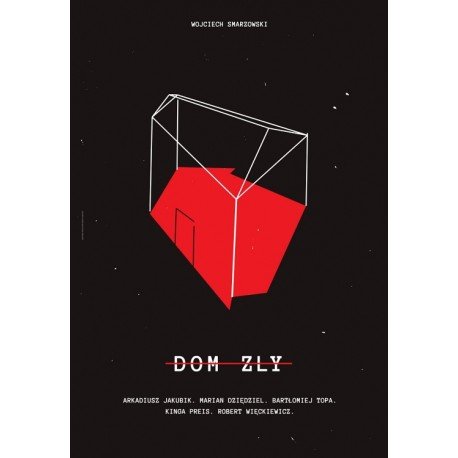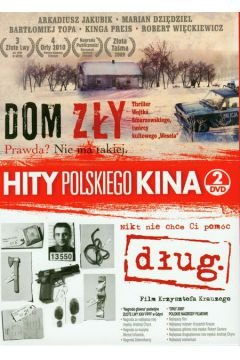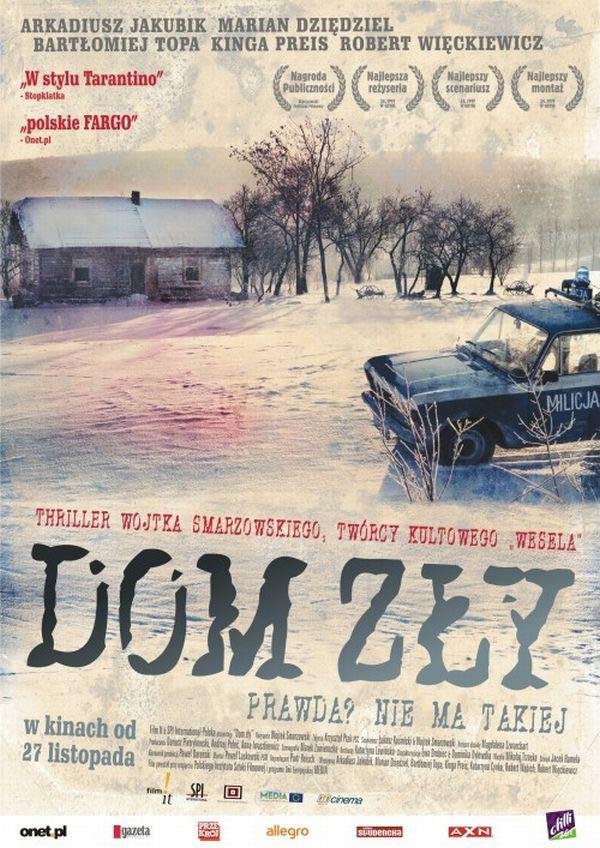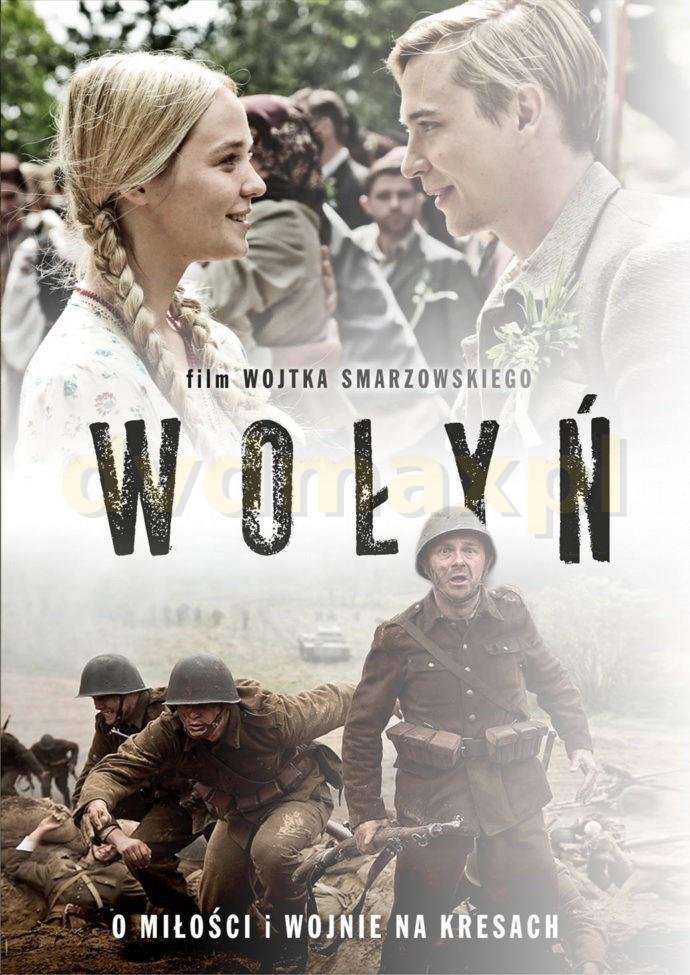The Dark House (2009): when the truth does not exist | cuando la verdad no existe
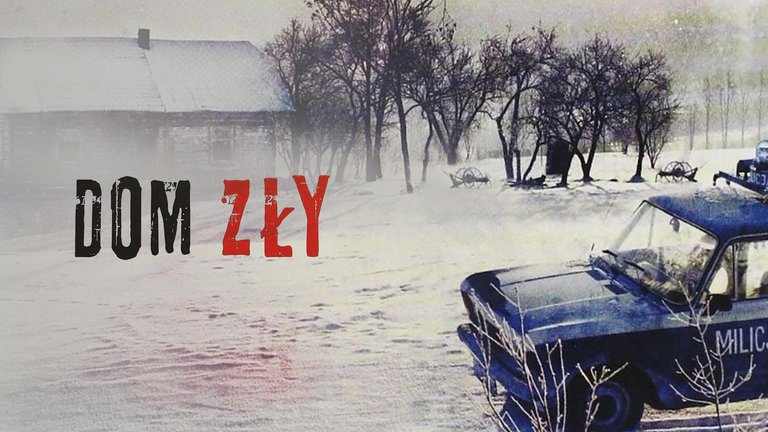
Un drama con tintes de thriller y de terror
When we think about European cinema, we often forget that the stories from that side of the world are not limited to French, Spanish, German and Italian dramas (I don't include England because we usually associate those films with North American Hollywood; because of the language, I guess), but further east there is a new world to discover, countries that have very interesting films like Hungary, Russia, Ukraine, Romania, Latvia and Poland.
Cuando pensamos en cine europeo, muchas veces se nos olvida que las historias de ese lado del mundo no se limitan a los dramas franceses, españoles, alemanes e italianos (no incluyo a Inglaterra porque solemos asociar esas películas al Hollywood norteamericano; por el idioma, supongo), pero más hacia el Este hay un mundo nuevo que descubrir, países que tienen películas muy interesantes como Hungría, Rusia, Ucrania, Rumania, Letonia y Polonia.
Poland is the land of one of my favorite film directors, Paweł Pawlikowski, and the best known, Roman Polanski, but also of the legendary Krzysztof Kieślowski and the historical Andrzej Wajda. Poland also has very good writers such as Nobel Prize winner Olga Tokarczuk. That is to say, there are stories to tell from that side of the world and there are people who tell them very well. Such is the case of Wojciech Smarzowski who in 2009 directed Dom zly (The Dark House), co-written with Lukasz Kosmicki. We can classify the film as a drama with some thriller, but also horror, not supernatural, but rather on the gore side. There are two narrative lines that little by little begin to converge. On the one hand, a story is told in present time, the year 1982, in a town near Rzeszów. The authorities, the police and the prosecutor, come to investigate several murders that occurred there four years ago and take with them the main suspect of having committed them, a man named Edward Środoń, who in 1978 was there and knew the people whose bodies were found by authorities. Then, the film alternates what happened in 1978 with what happens in 1982 and also the present time is divided into the story itself and the scenes in which the accused dramatizes what happened. These last scenes are filmed in black and white, without any dialogue and with uncomfortable, strident music, which little by little begins to be present throughout the film until it explodes in the final sequence.
Polonia es la tierra de uno de mis directores de cine favoritos, Paweł Pawlikowski, y del más conocido, Roman Polanski, pero también del mítico Krzysztof Kieślowski y el histórico Andrzej Wajda. Polonia, además, tiene muy buenos escritores como la Premio Nobel Olga Tokarczuk. Es decir, hay historias que contar de ese lado del mundo y hay personas que las cuentan muy bien. Tal es el caso de Wojciech Smarzowski quien en 2009 dirigió Dom zly (The Dark House), co escrita junto a Lukasz Kosmicki. La película podemos catalogarla como un drama con algo de thriller, pero también de terror, no sobrenatural, sino más bien por el lado del gore. Hay dos líneas narrativas que poco a poco comienzan a converger. Por un lado se cuenta una historia en el tiempo presente, el año de 1982, en una localidad cerca de Rzeszów. Las autoridades, la policía y el fiscal, llegan a investigar varios asesinatos ocurridos allí cuatro años atrás y llevan consigo al principal sospechoso de haberlos cometido, un hombre llamado Edward Środoń, quien en 1978 estuvo en ese lugar y conoció a las personas cuyos cadáveres fueron encontrados por las autoridades. Entonces, la película va alternando lo ocurrido en 1978 con lo que sucede en 1982 y además el tiempo presente se divide en la historia propiamente dicha y las escenas en las que el acusado dramatiza lo ocurrido. Estas últimas escenas son filmadas en blanco y negro, sin diálogo y con una música incómoda, estridente, que poco a poco comienza a hacerse presente en toda la película hasta estallar en la secuencia final.
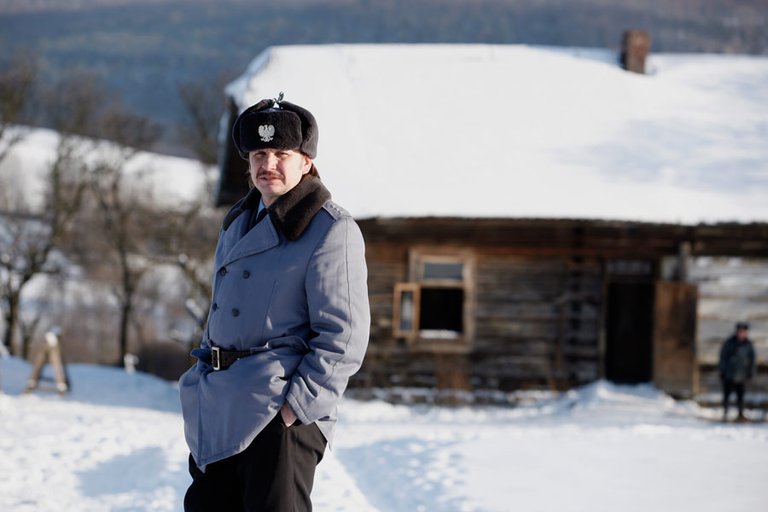
But the story is much more than a police thriller, because as the film progresses we realize that almost everyone present has a personal drama. An officer recently starred in an event that could turn into a scandal, there is a pregnant officer and her husband doubts whether he is the father of the child because a colleague from the police force - who is directing the investigation - seems to be romantically involved with her... anyway, there are many layers and little stories that intertwine.
Pero la historia es mucho más que un thriller policíaco, porque a medida que avanza la película nos vamos dando cuenta de que casi todos los presentes tienen un drama personal. Un oficial protagonizó recientemente un hecho que puede convertirse en escándalo, hay una oficial embarazada y su esposo duda de ser el padre de la criatura porque un compañero del cuerpo policial - quien dirige la investigación - parece estar invlucrado sentimentalmente con ella... en fin, hay muchas capas y pequeñas historias que se entremezclan.
But perhaps the most important thing about the plot, in addition to the motive for the murders and knowing how they occurred and who is guilty, is the atmosphere of corruption that permeates the entire place. What begins as a simple casual comment, the disappearance of a state farm worker, slowly begins to turn into a larger monster when the lieutenant in charge of investigating the murders begins to ask questions and collect testimonies from locals despite that his superior asked him to leave the farm off the case. But, if there is a relationship between one event and another - the accused was on his way to work on the farm when he passed by the house - why not investigate? What can he discovers? And if he finds something, what can he do? The issue is not so much that there is something secret, hidden, but rather that it seems that people have deliberately lied about many things. False accusations, ambushes set against people, manipulation of evidence, there are many abuses that the authorities have committed in that region of the country, but why? What is it that cannot be known? And in that context, then doubts arise about the accused, is he really guilty? Have things really happened as he tells them? Added to this is the attitude of the head of the investigation, who seems to be the only man there with certain values and certain integrity, but can he do anything? What price will you have to pay for discovering the truth in a place where it seems that the truth no longer exists?
Pero quizás lo más importante de la trama, además del motivo de los asesinatos y el saber cómo ocurrieron y quién es el culpable, es la atmósfera de corrupción que permea sobre todo el lugar. Lo que comienza como un simple comentario casual, la desaparición de un trabajador de una granja del estado, comienza a convertirse poco a poco en un monstruo mayor cuando el teniente encargado de investigar los asesinatos comienza a hacer preguntas y a recoger testimonios de los lugareños a pesar de que su superior le pidió que dejara la granja fuera del caso. Pero, si hay una relación entre un hecho y otro - el acusado se dirigía a trabajar en la granja cuando pasó por la casa - ¿por qué no investigar? ¿qué es lo que puede descubrir? y si encuentra algo, ¿qué podrá hacer? El tema no es tanto que exista algo secreto, oculto, sino que pareciera ser que se ha mentido deliberadamente sobre muchas cosas. Falsas acusaciones, emboscadas tendidas a las personas, manipulación de evidencias, son muchos los abusos que han cometido las autoridades en esa región del país, pero ¿por qué? ¿qué es lo que no puede saberse? Y en ese contexto, entonces surgen las dudas sobre el acusado, ¿será realmente culpable? ¿las cosas habrán sucedido realmente como las cuenta? A ello se suma la actitud del jefe de la investigación, quien parece ser el único hombre allí con ciertos valores y cierta integridad, pero ¿puede hacer algo? ¿cuál es el precio que tendrá que pagar por descubrir la verdad en un lugar en el que parece que la verdad ya no existe?
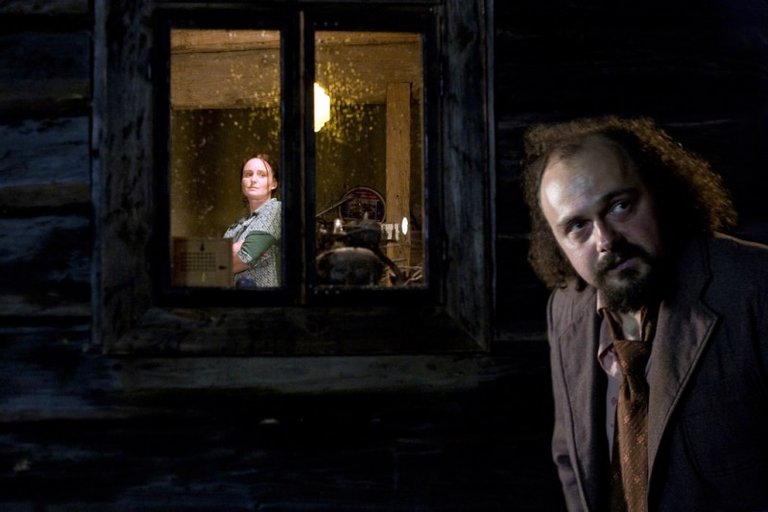
Corruption, manipulation, betrayal, bribery, the truth being crushed by power and money, the framework in which the plot develops is not good at all and since everyone seems guilty of something, we wonder, is there anyone who is innocent? Or someone who is at least innocent of what he is accused of? Guilt, punishment, helplessness, defeat, lies, The Dark House is surrounded by a heavy and hopeless atmosphere.
Corrupción, manipulación, traición, sobornos, la verdad siendo aplastada por el poder y por el dinero, el marco en el que se desarrolla la trama no es nada bueno y como todos parecen culpables de algo, nos preguntamos, ¿hay alguien que sea inocente? ¿o alguien que al menos sea inocente de aquello de lo que se le acusa? Culpa, castigo, impotencia, indefensión, derrota, mentiras, The Dark House está rodeada de una atmósfera pesada y desesperanzadora.
What I found brilliant about this film, in addition to the parallel narrative lines, is the way in which the tension gradually grows around everything and then closes into a knot that begins to suffocate practically all the characters. There comes a moment in the film when the web of lies and secrets is such that one does not know who to believe and the characters themselves seem to be tired and disgusted by such a facade. The ending surprised me, it seemed unpredictable and I also didn't see some plot twists coming that shook me. With its parallel narration, that creepy music, a crime as the center of gravity and that mix of drama, thriller and horror, The Dark House is a good cinematographic experience, recommended for lovers of any of those genres and for those who want to see something different from everyday life. The film left me wanting to see something more from the filmography of Wojciech Smarzowski, a director I had not known before and of whom I was able to review some titles, such as two war dramas set in the Second World War, Wołyń and Róza, which I believe will be my next encounters with Smarzowski, have any of you seen The Dark House? Do you know another Polish film director that I haven't mentioned? What movie from a strange place would you recommend me to watch? I read you in the comments.
Lo que me pareció brillante de esta película, además de las líneas narrativas paralelas, es la forma en que la tensión va creciendo gradualmente alrededor de todo para luego ir cerrándose en un nudo que comienza a asfixiar prácticamente a todos los personajes. Llega un momento en la película en el que la red de mentiras y secretos es tal que uno no sabe a quién creer y los mismos personajes parecen estar cansados y asqueados de semejante fachada. El final me sorprendió, me pareció imprevisible y tampoco vi venir algunos giros en la trama que me sacudieron. Con su narración en paralelo, esa música espeluznante, un crimen como centro de gravedad y esa mezcla de drama, thriller y terror, The Dark House es una buena experiencia cinematográfica, recomendada para los amantes de cualquiera de esos géneros y para quienes quieran ver algo diferente a lo cotidiano. La película me dejó con las ganas de ver algo más de la filmografía de Wojciech Smarzowski, un director que no conocía antes y de quien pude revisar algunos títulos, como dos dramas bélicos ambientados en la segunda guerra mundial, Wołyń y Róza, los cuales creo serán mis próximos encuentros con Smarzowski, ¿alguno de ustedes ha visto The Dark House? ¿conocen otro director de cine polaco que no haya mencionado? ¿qué película proveniente de un lugar extraño me recomendarían ver? Los leo en los comentarios.
Reseñado por @cristiancaicedo
Other posts that may interest you | Otros posts que pueden interesarte:
 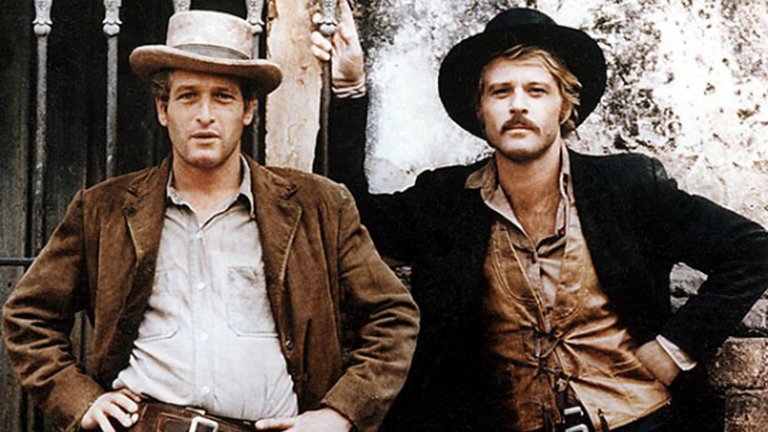 |
|---|
